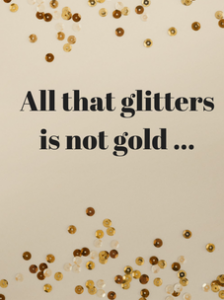Anyone remember Melania Trump’s keynote speech at the 2016 Republican National Convention? It was where passages were in lockstep with portions of Michelle Obama’s inspiring address to the Democratic National Convention in 2008. I recall staring wide-eyed at Mrs. Trump on my TV screen and seeing my Twitter feed filled with comments from others wondering why anyone would think that this blatant plagiarism would go undetected. Thankfully, it wasn’t long before the entire world realized that they had been fed regurgitated words and the credit was properly given where it belonged.
What about less publicized examples of plagiarism, where intellectual and/or creative fraud stays under the radar? In some ways, we live in an era where copy and paste have replaced the looking over someone’s shoulder as they write, but the act is still the same. It steals the respect and praise that the original source deserves. And as much as that is troubling, what is even worse is when plagiarism is used to promote an unethical competitor at the expense of the trustworthy and (probably) superior worker/thinker.
“All that glitters is not gold” – William Shakespeare, The Merchant of Venice
A while back, I discovered that someone was presenting my work as their own – a clear example of plagiarism. I noticed her post in a large Facebook group that I’m part of. Strictly speaking, she hadn’t copied and pasted in the same way that Melania Trump and/or her speech writer had. She did, however, use an almost identical title, and made the same points, in the same order as I had made in my carefully crafted article. What she probably didn’t appreciate is that my expertise in I/O psychology led me to a fresh analysis of the topic that is extremely rare among people who have more standard or typical backgrounds. We both use the label ‘coach’ to describe ourselves, but it bothered me that she was trying to legitimize herself using my ideas – without attribution.
in I/O psychology led me to a fresh analysis of the topic that is extremely rare among people who have more standard or typical backgrounds. We both use the label ‘coach’ to describe ourselves, but it bothered me that she was trying to legitimize herself using my ideas – without attribution.
It’s not flattery … it’s plagiarism
Although for a fleeting moment I felt somewhat wowed that my writing and thoughts were worth grabbing, the second emotion that surfaced was a total offense as I saw her name slapped on my work with no acknowledgment.
Remain calm – take action
I didn’t want to troll this woman on social media because of the reputational damage that it could cause to her – and her employers for whom I have genuine admiration. I took some time and considered the ways that I could handle the situation with some discretion.
Face the issue
In the end, I decided to phone one of the co-founders of the company where this woman worked. I explained the situation and proposed that either:
- The post in question include a link to my article, or
- The post is deleted from the two social media channels where it had been shared.
The problem was solved within a day or two of that phone call. The article was updated with a sentence properly acknowledging me and linking to my original article.
If ever you find yourself in a similar situation, here are five steps that got me results:
- I made sure that there was sufficient evidence of heavy “overlap” between my title, words, ideas, and themes by asking others to read both pieces. Once I established that there was significant repetition, without any attribution to my work I knew I had a case for complaint. I confirmed this with a lawyer well versed in intellectual property matters.
- Because the written piece had not generated any visible engagement, I chose to assume that my financial losses from her actions were minor and I did not ask the lawyer to take any immediate action. This was another point that I confirmed with the lawyer.
 I did, however, make sure that the company knew what their employee/contractor was up to. I did not hope or expect that this person would be terminated the way that a former Toronto school board superintendent had been. (Incidentally, this person also had his 1996 doctoral degree revoked.) Rather, my call would allow them to protect their reputation and credibility. The co-founder appreciated that I was within my rights to have started with a cease and desist letter instead of a courtesy phone call. I’m certain that he has no desire to see any further plagiarism. The situation was resolved when an extra sentence, including a link to my original article, was added to the plagiarized blog post.
I did, however, make sure that the company knew what their employee/contractor was up to. I did not hope or expect that this person would be terminated the way that a former Toronto school board superintendent had been. (Incidentally, this person also had his 1996 doctoral degree revoked.) Rather, my call would allow them to protect their reputation and credibility. The co-founder appreciated that I was within my rights to have started with a cease and desist letter instead of a courtesy phone call. I’m certain that he has no desire to see any further plagiarism. The situation was resolved when an extra sentence, including a link to my original article, was added to the plagiarized blog post.
- I chose to keep the name of the person and the business that they were representing to myself. As Michelle Obama noted during the 2016 campaign, “when they go low, you go high …” In other words, sometimes even when you are in the right, when you have a negative professional encounter it can still hurt your own professionalism.
- I found a more creative way to share my experience and stay vocal about this specific (and probably widespread) problem. It’s like how I use my coaching skills to manage similar issues that my clients might face.
Want some support to handle a sensitive career or HR issue? I invite you to contact me by email, phone, or via direct message on Twitter, Facebook, or LinkedIn.
More than career coaching, it’s career psychology®.
I/O Advisory Services – Building Resilient Careers and Organizations.
Easily share this article using any of the social media icons below.




